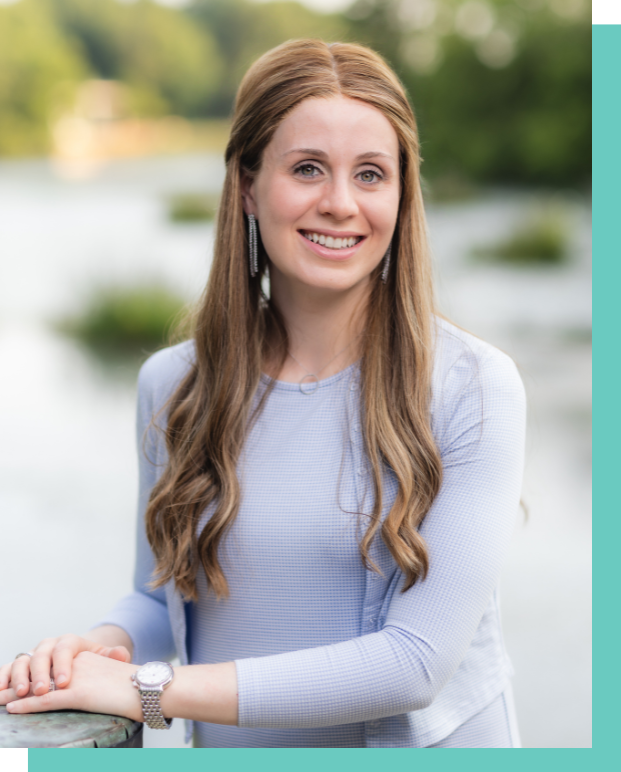When it comes to Jewish holidays, what often comes to mind is food. Food adds a celebratory aspect to holidays and for most, adds an element of joy too. The holiday of Hanukkah, also known as the festival of lights, is no different than any other. It is celebrated with specific meaningful foods that mark past events in Jewish history. For those struggling with their relationship with food or with an active eating disorder, dealing with diet culture during Hanukkah can be challenging. Keep reading to learn how to navigate diet culture during Hanukkah.
What are the Jewish People Celebrating?
Before we discuss how to navigate diet culture during Hanukkah, let’s go through a bit of background on the holiday. What exactly are the Jewish people celebrating this time of year? We don’t bring out special foods for no particular reason. So let’s dive into the history and significance of Hanukkah!
Over 2000 years ago, the Jewish people had a temple. This temple served as the center for everything related to the Jewish religion. King Antiochus IV of Greece came with his army and invaded the temple. A group of Jews known as the Maccabees fought to defend the Jewish people through the use of guerrilla warfare. After years of struggle, the Jews ultimately succeeded in driving the Greeks out and were able to restore the temple.
When the Maccabees entered the temple for the first time, they wanted to light the temple menorah (candelabrum). Problem was, they found only one small jug of oil, enough to last for one day. Miraculously, the oil burned for 8 days and the candles on the menorah burned throughout. The Jewish people celebrate this miracle by lighting the menorah for 8 days on Hanukkah. This miracle is also celebrated through eating oily foods. Here are the most common foods that are eaten on Hanukkah.
- Donuts: Whether homemade or store-bought, donuts are pretty much a staple in every Jewish home during the time of Hanukkah.
- Latkes: A traditional Jewish food eaten on Hanukkah. Latkes are potato pancakes fried in oil.
Some of the other traditions of this holiday include playing a game called a dreidel, exchanging gifts, and getting together with friends and family.
How Can Diet Culture Manifest During Hanukkah?
Now that we’ve covered the history, let’s explore how to navigate diet culture during Hanukkah while struggling with an eating disorder or disordered eating.
So far, I’ve painted a very rosy picture. I wouldn’t be surprised if you picture families all sitting around tables enjoying food, not a care in the world. This is definitely what it should be but unfortunately, not always the reality. Even for those without eating disorders, there is still diet culture and food rules that tend to interfere on holidays. Some common statements you might hear are, “I’m only going to eat one donut (food rule)” or “that is way too heavy (diet culture).”
For someone with an Eating Disorder ED, these statements can be extremely triggering. Let’s talk about some ways to challenge diet culture and eating disorders. The goal- to enjoy delicious traditional foods this year despite all the influences around us.
How to Navigate Diet Culture During Hanukkah
1. Don’t Label Foods
Something I often talk with my client about is moving away from labeling foods. Food does not have moral values and all foods are created equal. Therefore, there is no reason to call a food “good” or “bad.” Donuts and latkes are no different. They are not good or bad. Should these foods be eaten all day every day? No! Can those foods be incorporated as part of meals or snacks on any given day? Definitely!
2. Oil Isn’t all Bad
What tends to bring up the most anxiety about these foods is usually the reason why they are eaten at this time of year. Can you guess what that is? Oil. For some reason, oil has gained a bad rap in diet culture. More recently, I have also heard talk about categorizing oils into good and bad which of course leads us back to the idea that no foods are good or bad. To put it plainly, there is nothing wrong with oil. Oils are a good source of fat and fat is an essential macronutrient. Some oils have even been shown to provide cardiovascular benefits and lower the risk of heart disease. So let’s try to enjoy these delicious foods!
Additional Tips for Navigating Hanukkah with an Eating Disorder
For someone in eating disorder recovery, it may seem like too much to commit to eating these foods on Hanukkah. Here are some tips to prepare for the holiday so you can do your best to be ready.
1. Prepare for Food Exposures
Did you hear me say prepare? That is key. Talk to your dietitian now and start exposure to these foods if you can.
2. Reflect on Past Hanukkahs Before your Eating Disorder
Reflect back on pre-Eating Disorder memories from past Hanukkahs.
3. Focus on Other Things
If the thought of Hanukkah brings up anxiety, try to focus on the other aspects, spending time with family celebrating, lighting the menorah, exchanging gifts, etc.
4. Redirect the Conversation
If you know there will be diet talk at the table, talk to your family in advance or one family member who you feel comfortable talking to. Ask if they can make it a point to redirect the conversation away from diet talk.
5. Hold True to Your Values
Most importantly, hold true to your values, remember why you are on this recovery journey, and give yourself space to struggle if you need to, that is okay!
Closing Thoughts on Navigating Hanukkah with an Eating Disorder
In summary, Hanukkah is a joyous holiday. Hanukkah is a time to celebrate and commemorate the restoration of the temple and the miracle of the oil. Hanukkah is also a time when delicious foods are served. This can remove the joy for those struggling with an eating disorder. This can also make space for diet culture to enter. This year, let’s try to prepare and prevent these things from happening. Let’s try to enjoy the delicious holiday foods. Let’s remember that no food is good or bad. Let’s remember the reasons why these foods are eaten. Let’s focus on joyous things, tap into the day, and have a very happy Hanukkah!
Contact Us
Courage to Nourish is a group of HAES eating disorder dietitians. We have in-person locations in Alexandria, Virginia, Columbia, Maryland. and College Park, Maryland. We offer virtual services across the state of Virginia, Washington DC, Pennsylvania, and Colorado. We offer individual nutrition therapy. As well as support groups. We would love to guide you in building a better relationship with food.
Contact us for more information. And to schedule a discovery call. Also, sign up for our client or clinician newsletter!

I previously worked at an eating disorder treatment center and have experience in various levels of care including outpatient. I joined Courage to Nourish so I can pursue my passion for dismantling diet culture and reducing weight stigma. I enjoy working with all individuals and particularly enjoy working with pregnant/postpartum clients and adults struggling to break free from bingeing, restricting, or diet culture. I’m a great listener, patient, compassionate, and aim to meet my clients where they’re at in recovery. I would love to work with you!

